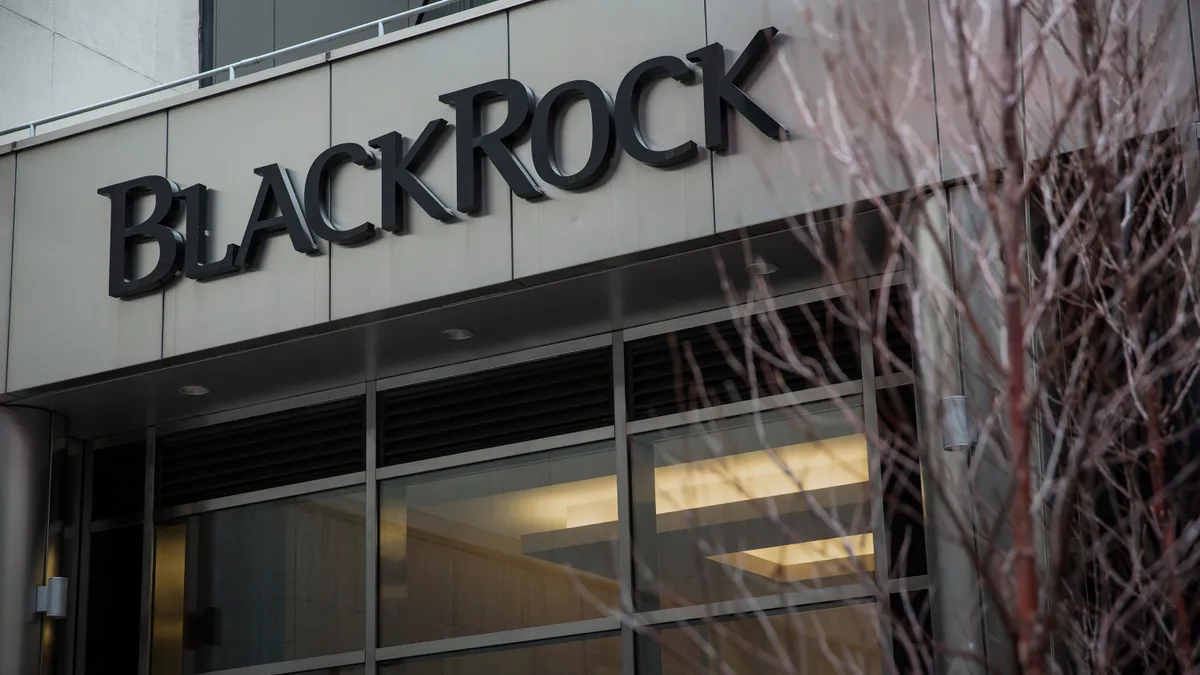It would be easy — if perhaps reductive — to label the fight over environmental, social and governance investment in the finance sector as “Big Oil v. BlackRock.”
Take a look at this week’s headlines, though, and you’ll find the world’s largest asset manager pitted against the chairman of the Texas State Board of Education — who is also the CEO of a company that patrols oilfields by air.
“BlackRock’s dominant and persistent leadership in the ESG movement immeasurably damages our state’s oil & gas economy and the very companies that generate revenues for our PSF,” Aaron Kinsey, the oil aviation CEO-cum-education board chair, wrote in a letter posted on X.
PSF refers to the Texas Permanent School Fund, which announced Tuesday it would divest, as of April 30, $8.5 billion from BlackRock, which it had enlisted as an asset manager. BlackRock, since 2022, however, has held a spot on a list of companies Texas’ comptroller deems to be boycotting fossil fuels. A 2021 Texas law requires state pension funds to divest from companies on that list.
“BlackRock’s destructive approach toward the energy companies that this state and our world depend on is incompatible with our fiduciary duty to Texans,” Kinsey wrote. “The PSF will not stand idle as our financial future is attacked by Wall Street.”
BlackRock Vice Chair Mark McCombe, in a letter Thursday to Kinsey, asserted that the asset manager had generated $250 million for Texas’ PSF since 2006, noting that BlackRock has invested $120 billion in Texas-based public energy companies.
“We urge you to reconsider your decision and prioritize Texas schools and families who have benefited from BlackRock's consistent, long-term investment out-performance," McCombe wrote in the letter, seen by Reuters and Bloomberg. “Your actions put short-term politics over your long-term fiduciary responsibilities.”
If anything, finance companies this year have shown a willingness to step back and analyze their commitments to ESG.
JPMorgan Asset Management and State Street Global Advisors last month confirmed they were leaving Climate Action 100+, an investor group that advocates curbing the carbon footprint of the world’s largest corporate greenhouse gas emitters. BlackRock, meanwhile, said it would remain a member of that coalition but would transfer its participation to a smaller international arm.
This week, no fewer than five big banks made public comments that perhaps show the finance sphere is taking its foot off the gas with regard to ESG – and not in the way that would reduce emissions.
Like BlackRock’s McCombe, Barclays CEO C.S. Venkatakrishnan said sustainability efforts are finding a foil in political polarization.
“We are standing on the brink of a transformative era in the drive toward a net-zero economy,” Venkatakrishnan said Tuesday at an ESG conference, according to Bloomberg. “You already are seeing in the world signs of a wavering strength of commitment. … People are still committed, but we feel like we go forward and we go a little backward.”
UBS CEO Sergio Ermotti told a separate conference Thursday that finance “is an attractive target for policymakers” who want to “divert at least some of the blame of unpopular decisions to banks.”
“Banks should not be forced to take decisions on behalf of policymakers: We are part of the private sector and we need to represent and protect the interest of our diversified clients,” he said, according to Bloomberg. “While we are not comfortable taking on the role of standard setters for all economic actors or the climate police on behalf of authorities, we are confident in our duties as financial risk managers.”
This mirrors comments Ermotti made in January to the World Economic Forum in Davos, Switzerland.
“Trying to enforce a political agenda through a regulatory regime without having a public and democratic debate about it is wrong,” he said, according to Bloomberg. “We can help, we can advise, we can sustain but we should not be seen as the driver of those debates.”
A spate of Canadian banks, meanwhile, showed an unclear connection between ESG commitments and planet-affecting end results.
Scotiabank disclosed that, at the near-halfway point of its effort to put C$350 billion toward climate-related finance by 2030, it has invested C$132 billion — but that climate-related projects "may — or may not — lead to reductions in overall emissions," Reuters reported.
TD, meanwhile, said the greenhouse gas emissions impact of its business activities cannot be “reliably measured at this time.” And the Canadian Imperial Bank of Commerce said “sustainable financing may involve eligible green activities ... but [does] not necessarily curtail the growth of their absolute emissions,” according to Reuters.
“The question for regulators will be whether it's enough for the banks to insert these brief disclaimers deep in their ESG reporting or whether they need to do a better job telling their investors and the public that these huge financial numbers they promote as green aren't necessarily adding up to emissions reductions at all,” Matt Price, executive director of Investors for Paris Compliance, told the wire service.
Perhaps most telling, Morgan Stanley’s asset-management arm plans to raise at least $1 billion for a new fund dedicated to energy-transition bets, people familiar with the matter told Bloomberg this week.
On its surface, this might be taken to mean that banks are more comfortable letting clients gamble on a will-they-or-won’t-they-transition rather than actually doing the work.
Then again, maybe Ermotti’s comments are worth reviewing, and banks need to ask whose fight this is, and what are the boundaries of a bank’s responsibility.
BlackRock’s McCombe appeared to frame his argument that way in his letter to Kinsey.
“Ending a long, successful partnership that has been a positive force for thousands of Texas schools and families in such a reckless manner is irresponsible,” he wrote. “How our clients invest and whom they entrust to manage their money is entirely their decision, but we feel an action of this magnitude warrants transparency and consensus — not political-driven decision-making.”























